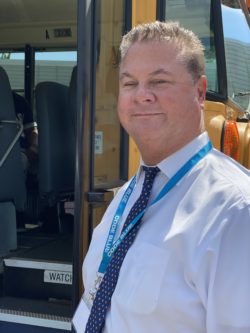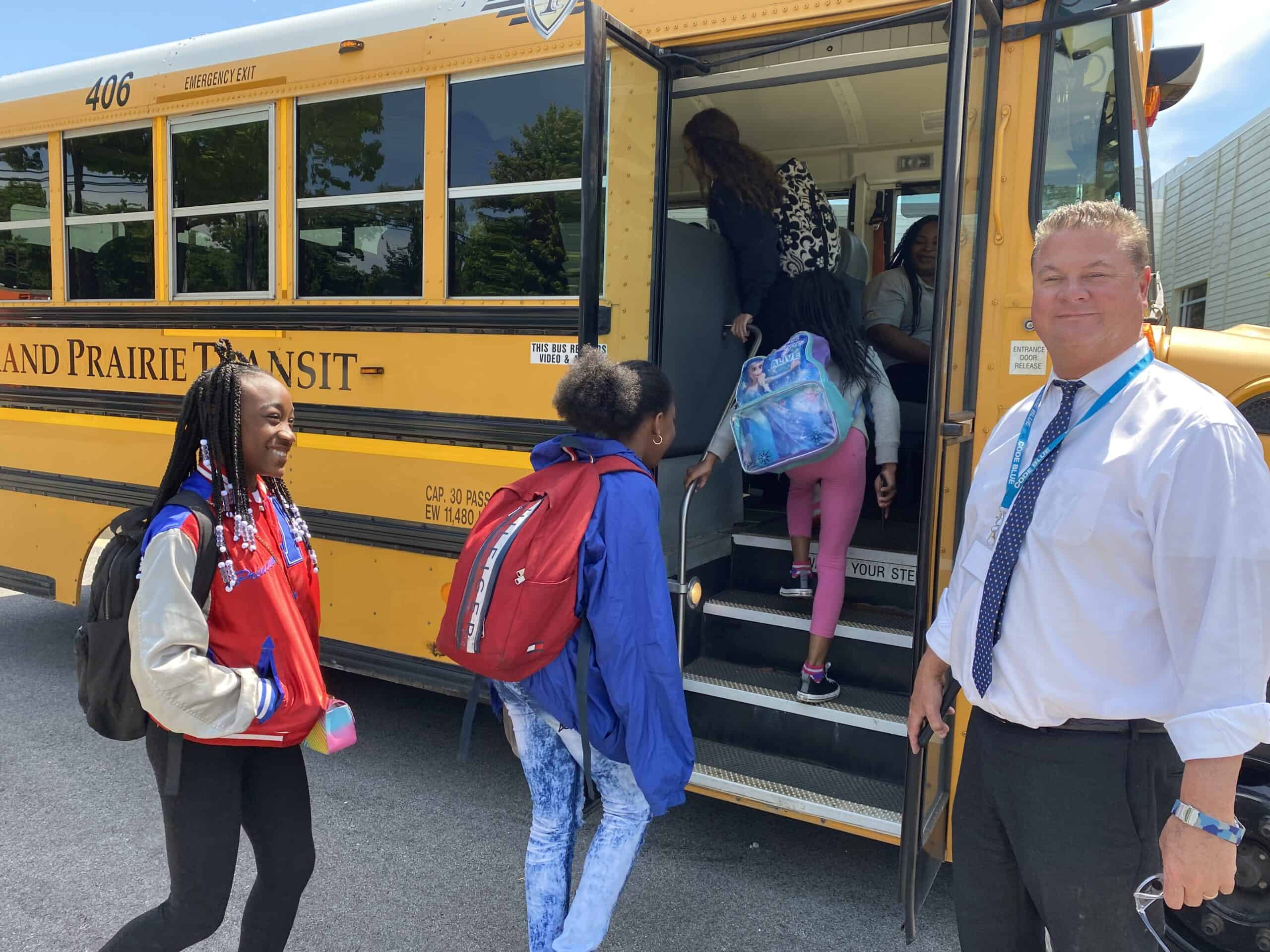Chicago-Area Bus Company Embraces Soy
In 1958, when John Benish Jr.’s father began ferrying school children in the rapidly expanding Chicago area, the Space Race had just begun. Elvis Presley topped the charts. Yet by as late as the 1990s, the junior Benish remembers one thing that hadn’t changed much –the plume of black smoke that would rise above the iconic yellow school buses when the driver started the engine.
More than six decades later, the kids have buses with cleaner emissions to ride on – and American-grown soybeans are partly to thank.
Benish Jr. serves as president and chief operating officer of Cook-Illinois Corporation, the sixth largest school bus contractor in the U.S. He began powering his fleet of more than 2,200 school buses with biodiesel blends in 2005. Today, the company operates 2,050 school buses, plus an additional 25 shuttle buses at Chicago Midway Airport – all of them running on blends of soy-based biodiesel.
Success with biodiesel in both fleets built the foundation for Benish to start evaluation of other products made with U.S. Soy, such as tires made by Goodyear Tire & Rubber Company. He even wears a pair of Skechers shoes with a tread made from the same high-performing soy-biobased technology that Goodyear uses in tires.

“I like products made from soy because they are renewable and also healthier than their petroleum counterparts,” Benish Jr. said. “The state of Illinois is one of the largest in soybean production, and as a U.S.- based family-owned and operated company, we strongly believe in buying U.S. products.”
The company uses up to 20 percent biodiesel (B20) in everything with a diesel engine, with no need to modify the engine. In 2023, the buses used an estimated half-million gallons of biodiesel.
When Benish Jr. recently purchased 20 new shuttle buses for Midway, the company’s contract required approval for B20 as a condition of purchasing the buses. Benish Jr. also expanded a project with Optimus Technologies, now powering five school buses with B100 (100% biodiesel). He plans to add three more B100 buses to his lineup.
“I’ve come to the conclusion that biodiesel is the fastest, easiest way to decarbonize a school bus and clear the air, because it can be used immediately in existing diesel technology rather than investing in a new fleet or waiting for future technologies,” Benish Jr. said. “I hear a lot of talk about electric, and that may happen in the future but it’s a long way off for buses, practically speaking. We can accomplish the same goals with fuels like biodiesel, and that’s my message to other fleet managers.”
Biodiesel works like petroleum diesel, but it’s made from plant-based oils, like soybean oil, or recycled fats and cooking oil. It can be blended with — or sometimes fully replace — petroleum diesel for less impact on the environment. Biodiesel reduces greenhouse gas emissions by an average of 74% compared to petroleum diesel.
“The fuel is extremely reliable, but at the heart of our commitment to biodiesel is that it is better for the children,” Benish Jr. said. “We transport many special needs kids, and breathing issues and asthma are common. Biodiesel reduces harmful exposure.” This was even more noticeable and impactful in the early 2000s before diesel technology became dramatically cleaner, Benish Jr. said.
A 2022 study shows that switching to 100% biodiesel in 28 transportation and home heating oil sectors, one of which was Chicago – Naperville, would create immediate community health improvements. Combining all 28 sites, benefits would include more than 456,000 fewer/reduced asthma cases per year, more than 142,000 fewer sick days per year and over $7.5 billion in avoided health costs annually, the study showed.
Benish Jr. is a past president of the National Student Transportation Association. He also volunteers as a Bio Ambassador, a United Soybean Board educational program that assists fleets and other leaders nationwide to increase awareness of how soy-biobased products can benefit human health and the environment. He is an inaugural member of the B20 Club of Illinois, a partnership of the American Lung Association and Illinois Soybean Association that recognizes and supports Illinois-based fleets committed to using B20 or greater blends.
“This school bus fleet is a true pioneer, having used biodiesel blends up to B20 continuously since 2005,” said Bailey Arnold, lead for the B20 Club of Illinois and director of clean air initiatives for ALA. “There’s no doubt that Cook-Illinois is a national leader in sustainability and protecting the health of students and communities through the use of alternative fuels and technologies like biodiesel.”
Because of potential for biobased products to create new markets for soybeans, U.S. soybean farmers have invested millions of dollars to research, test and promote biobased products. Much of this work was done through the United Soybean Board, which is composed of 77 U.S. soybean farmers appointed by the U.S. Secretary of Agriculture to invest soybean checkoff funds. As stipulated in the Soybean Promotion, Research and Consumer Information Act, USDA’s Agricultural Marketing Services has oversight responsibilities for the soybean checkoff.
THIS CASE STUDY IS PROVIDED FOR INFORMATION ONLY. THE UNITED SOYBEAN BOARD DOES NOT ENDORSE, PROMOTE OR MAKE ANY REPRESENTATIONS REGARDING ANY SPECIFIC SUPPLIERS MENTIONED HEREIN.

